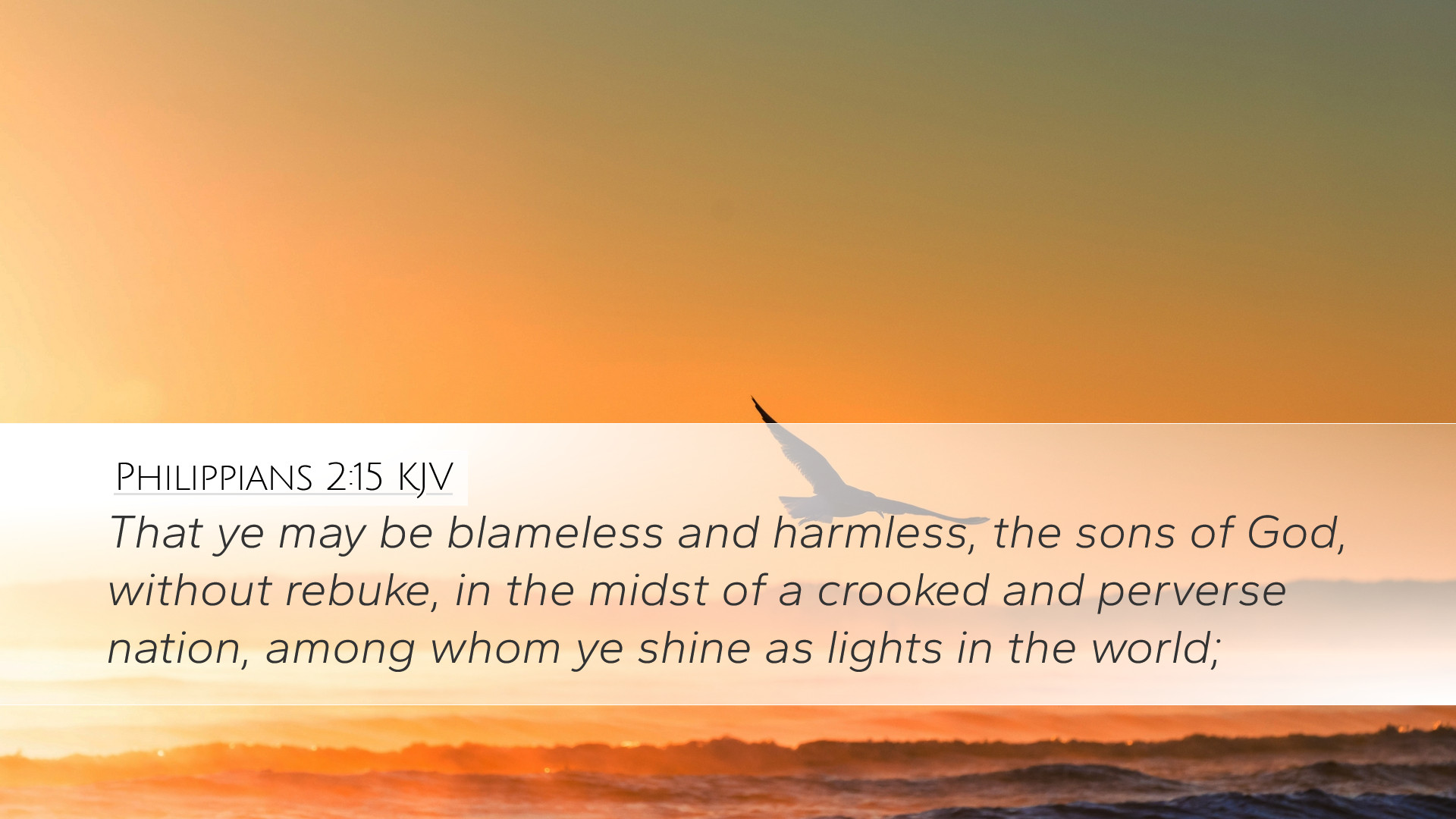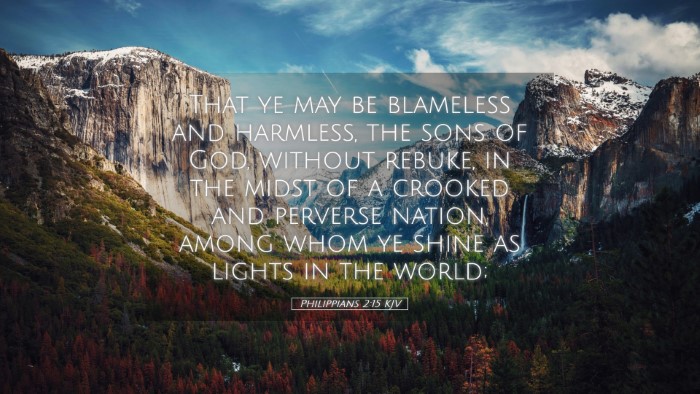Commentary on Philippians 2:15
Text of the Verse: "That ye may be blameless and harmless, the sons of God, without rebuke, in the midst of a crooked and perverse nation, among whom ye shine as lights in the world."
Introduction
This verse is part of the Apostle Paul’s exhortation to the Philippians, calling them to live out their faith in a manner that reflects their identity as children of God. It highlights the necessity of moral integrity and the effective witness of Christians in a world characterized by darkness and moral decay.
Exegesis of Philippians 2:15
“That ye may be blameless and harmless...” The focus begins with the aspiration for believers to be both “blameless” (irreproachable) and “harmless” (innocent), which emphasizes the duality of Christian character: integrity in actions and purity in heart.
Matthew Henry asserts that being “blameless” is crucial in a society that often points fingers, while being “harmless” pertains to abstaining from wickedness and exhibiting the love of Christ.
The Identity of the Believer
The Apostle Paul further identifies them as “the sons of God.” This phrase privileges believers with a familial relationship with God, marking them as distinct from the secular world. Albert Barnes elaborates that this sonship is the basis for their moral responsibilities and should motivate them to a higher standard of living.
Context of the Verse
Paul’s admonition comes within the broader context of encouragement during trials. He encourages the Philippians to hold firm in their faith as they encounter a “crooked and perverse nation.” Adam Clarke interprets this description as reflective of the moral challenges posed by the surrounding culture, which serves as a backdrop for their witness.
Beacons of Light in Darkness
“Among whom ye shine as lights in the world” reinforces the imperative that Christians are not merely to exist in their environment but to actively illuminate it. In times of moral uncertainty, believers are called to be a guiding presence. As noted by Barnes, this illumination involves demonstrating traits such as love, joy, peace, and truth through their actions.
Practical Implications
- Being Blameless: This requires ongoing self-examination and repentance, striving to live according to God's commandments.
- Being Harmless: Believers should pursue purity in both thought and action, avoiding participation in the sins of the world.
- Living out Sonship: Understanding their identity in Christ propels Christians to reflect His character in their daily interactions.
- Shining as Lights: This involves actively engaging with the culture around them, promoting righteousness and truth through their testimonies.
Reflection on Cultural Context
Paul’s concern was not for isolation but for engagement. In a “crooked and perverse” world, the call for the Philippians stands as relevant today. They are to be agents of change, not conforming to the simplicity of prevailing cultural norms that often contradict the faith they profess. Clarke notes that the impact of their light is most effective in darker contexts, which enhances the necessity of their testimony.
Conclusion
Philippians 2:15 serves as a clarion call to Christians in every age to embody the light of Christ amidst a dark world. By being “blameless and harmless,” believers reflect Jesus’ purity and grace. Their identity as “sons of God” compels them toward moral and ethical excellence, while their function as lights drives home the need for active witness. In summary, this text invites deep reflection on what it means to shine brightly in a culture of darkness, emphasizing both personal integrity and the impact of believer's lives on the world around them.


